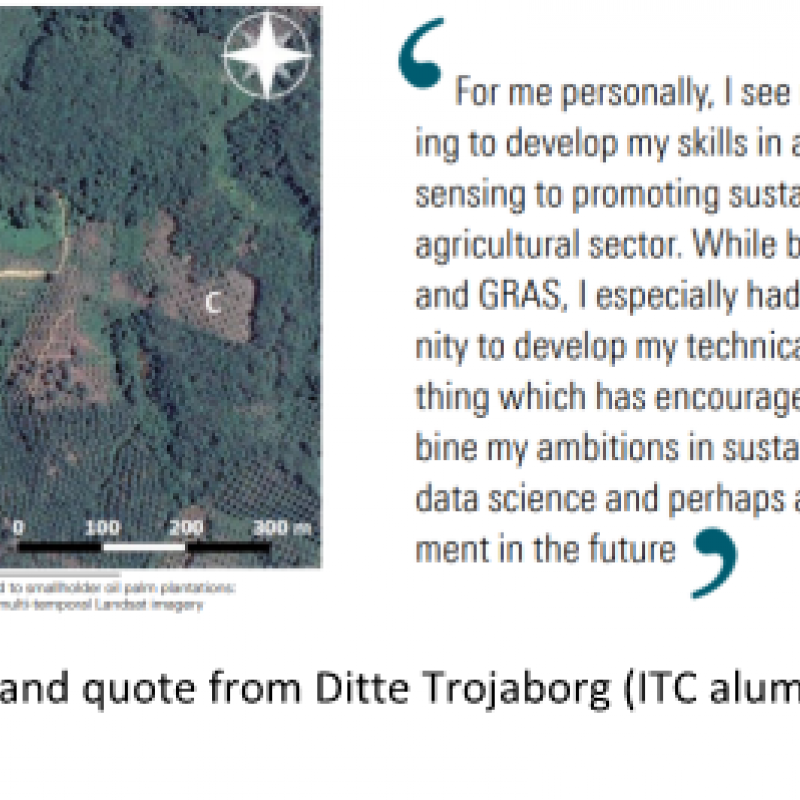Geo information for sustainability certification

Strong students can combine their MSc research with an internship at GRAS. You will get an allowance that covers your costs for accommodation in Cologne, Germany, and you will get real-life experience in sustainability certification. A previous student who did this was in high demand after graduation. Read her story in the ITC News. Currently two students are working on bark beetle topics for GRAS (I can give you their names if you want to hear their experiences) See for more info on GRAS: https://www.gras-system.org/ and for the sustainability standard and ISCC see: https://www.iscc-system.org/
Sustainable production of food and other biomass-derived products needs checking if, indeed, no harm is done to biodiversity, our environment in general, or to people. Globally, many ecosystems are under severe pressure because of the high demand for food, bioenergy and bio-based products. Undesired land conversions and degradation must be avoided and we need accurate, easy-to-use and low cost tools to be applied in monitoring systems. Development of and testing remote sensing based methods is needed to establish such monitoring systems. Are you interested in being part of this challenge?
Together with your ITC supervisors and people from the Global Risk Assessment Services (GRAS) you can pick a topic that has your interest. Topics are very diverse e.g. :
- detecting grassland conversions (focus on Canada and Europe)
- detecting if bark beetle infestations (focus on Germany) are timely noticed and cleaned up
- mapping high conservation value areas and biodiversity hotspots (focus on Brazil)
- mapping above-ground biomass and carbon in forests (focus mainly on Europe)
- detecting and mapping abandoned and degraded land
Sustainability certification helps to make clear which producers produce their goods with respect for nature and people. Many sustainability criteria (e.g. non-forestation) have a spatial component. Checking each and every spatial criterion with field visits is impossible. Therefore, we need scientifically sound methods to do this. The methods that you will use depend on the specific topic environmental issue that you will address
